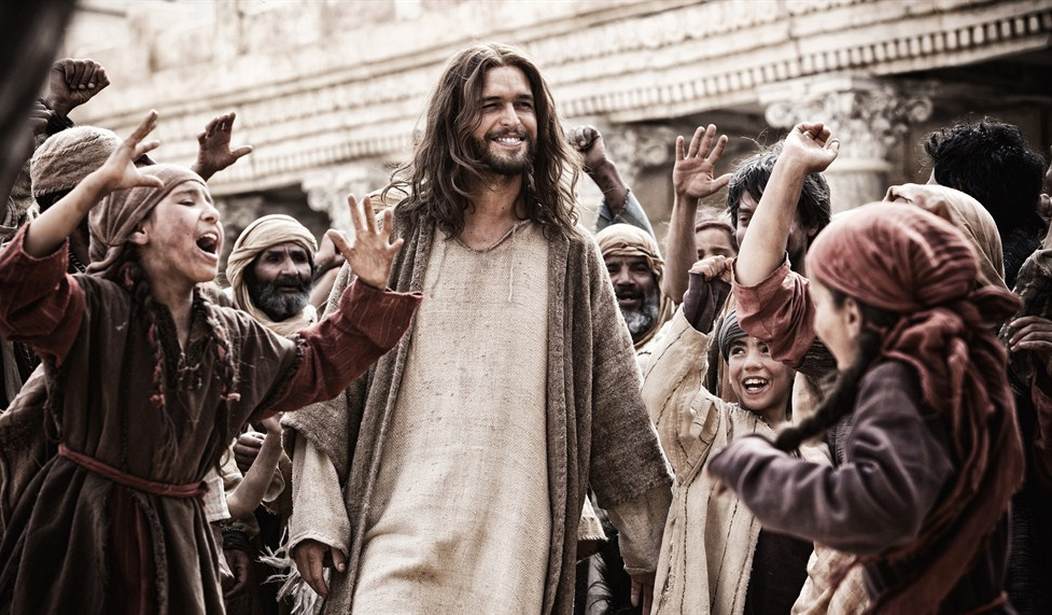Author’s Note: Interested readers can find all previous volumes of this series here. News Flash: The first 56 volumes are compiled into a book titled “Bible Study For Those Who Don’t Read The Bible.”
Thanks for joining our Christmas weekend Bible study. Today we celebrate the birth of baby Yeshua (Jesus’s name in Hebrew) that begins a two-part discussion of Messianic prophecies found in the Hebrew Bible/Old Testament.
First, we read what Jesus said about the prophecies, and a VIP guest offers some meaningful insight. Then a review of what was written in the Hebrew Bible relevant to Christmas and the lineage of Jesus. Next week we will examine prophecies about His life, identity, torment, death, and overall mission.
We begin in John’s gospel, where Jesus chastised His people for persecuting Him after healing a life-long invalid on the Sabbath. The temple leaders were also trying to “kill him” because Jesus was “calling God his own Father, making himself equal with God” (John 5:18). Below is a short segment of what Jesus said to the leaders:
“'You study the Scriptures diligently because you think that in them you have eternal life. These are the very Scriptures that testify about me, yet you refuse to come to me to have life’” (John 5:39-40).
Those verses refer to what Jesus famously said earlier in John:
“‘For God so loved the world that he gave his one and only Son, that whoever believes in him shall not perish but have eternal life’” (John 3:16).
Furthermore, Jesus’s earthy ministry — a ministry exclusive to the Jewish people — points to the significance of John 5:39 with Jesus referencing “the very scriptures that testify about me,” while confronting the Jewish leaders.
Recommended
Jesus next mentioned the prophecies shortly after His Resurrection when He is seen for the second time in a passage called the “Road to Emmaus” — after initially appearing to Mary Magdalene near the tomb. Here is the story:
Jesus started walking alongside two people, but only Cleopas was named. The couple was discussing the spectacular news about the empty tomb. They didn’t recognize Jesus, and He pretends not to know, prompting Cleopas to ask Jesus:
“‘Are you the only one visiting Jerusalem who does not know the things that have happened there in these days?’” (Luke 24:18). Sounding exasperated, Jesus says:
“‘How foolish you are, and how slow to believe all that the prophets have spoken! Did not the Messiah have to suffer these things and then enter his glory?’ And beginning with Moses and all the Prophets, he explained to them what was said in all the Scriptures concerning himself” (Luke 24: 25-27).
Just imagine Jesus “explaining” all the prophetic “Scriptures concerning himself.” Later at dinner, the couple recognized Him as the “risen Lord.” The “Road to Emmaus” is notable since Jesus bemoans how the prophecies about Him were ignored.
The ancient Scriptures spoke the truth, Jesus spoke the truth, but “the lost sheep of Israel” were deaf. (Except for his loyal band of followers, and even they took a while before understanding the truth.)
For more perspective about Messianic prophecies, I asked Jonathan Cahn — a Messianic Jewish rabbi, Hope of the World ministries leader, and No. 1 best-selling Harbinger series author — to share his insights: In an email, Rabbi Cahn wrote:
“Over two and a half thousand years have gone by since the prophets of Israel sealed their prophecies as to who the Messiah would be. And in that time, there have been many among the Jewish people who have risen up to claim to be one. They came, they made their claim, and they passed away. None of them could be considered a serious candidate for the description – none.. but One. According to the Hebrew prophecies, there is only One person in Jewish history, in world history, who can claim the title of Messiah – Yeshua, Jesus.
“He alone is known for being born in Bethlehem, exactly where the prophet Micah said the Messiah must be born (Micah 5:2). He alone performed his ministry, shortly before the destruction of Jerusalem, according to Daniel’s prophetic timetable concerning the Anointed One (Daniel 9:24-26). He alone is known for entering Jerusalem on a donkey according to the words of the prophet Zechariah (Zechariah 9:9). He alone is known for offering his life as a sacrifice, an atonement, dying for our sins, according to the prophecy of Isaiah (Isaiah 53). He alone of Israel became 'the light to the Gentiles' (Isaiah 42). He alone has divided the world’s calendar in two so that every moment of human existence is marked according to how far it stands from his birth.
“There is only One. There is not even a runner-up. For all who seek for the Answer, for Redemption, for Salvation, or for the Messiah come… He already has. There is none other. And so it is written: 'There is no salvation in no one else, for no other name given under heaven by which we must be saved...'"
Thank you, Rabbi Cahn!
Now let’s review some of the prophecies about the birth of Jesus:
Messiah would be born in Bethlehem (Micah 5:2) fulfilled: (Matthew 2:1) (Luke 2:4-6).
Messiah would be born of a virgin (Isaiah 7:14) fulfilled: (Matthew 1:22-23) (Luke 1:26-31).
Messiah would come from the line of Abraham (Genesis 12:3) (Genesis 22:18) fulfilled: (Matthew 1:1) (Romans 9:5).
Messiah would be a descendant of Isaac (Genesis 17:19) (Genesis 21:12) fulfilled: (Luke 3:34).
Messiah would be a descendant of Jacob (Numbers 24:17) fulfilled: (Matthew 1:2).
Messiah would come from the tribe of Judah (Genesis 49:10) fulfilled: (Luke 3:33) (Hebrews 7:14).
Messiah would be heir to King David's throne (2 Samuel 7:12-13) (Isaiah 9:7) fulfilled: (Luke 1:32-33) (Romans 1:3).
Messiah would be called Immanuel (Isaiah 7:14) fulfilled: (Matthew 1:23).
Messiah would spend a season in Egypt (Hosea 11:1) fulfilled: (Matthew 2:14-15).
If this topic interests you, Google “Messianic prophecies in the Old Testament.” And, after further study, you might ask: “Why did Jesus’s people fail to see that He was the Messiah?” Moreover, “Why do people today fail to see that Jesus is the Messiah?”
Then ask yourself: “Do you know who He is?” During this Christmas weekend, that question should supplant, “What did you get?”
I wish all my readers a Merry Christmas and Happy New Year, with special thanks to those who send uplifting and encouraging personal emails.
Myra Kahn Adams is a media producer and conservative political and religious writer with numerous national credits. Her new book, “Bible Study For Those Who Don’t Read The Bible,” reprints the first 56 volumes of this popular study. Myra is also Executive Director of SignFromGod.org, a ministry dedicated to Shroud of Turin education. Contact: MyraAdams01@gmail.com or Twitter @MyraKAdams.
























Join the conversation as a VIP Member